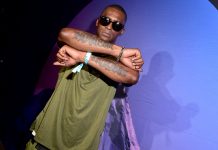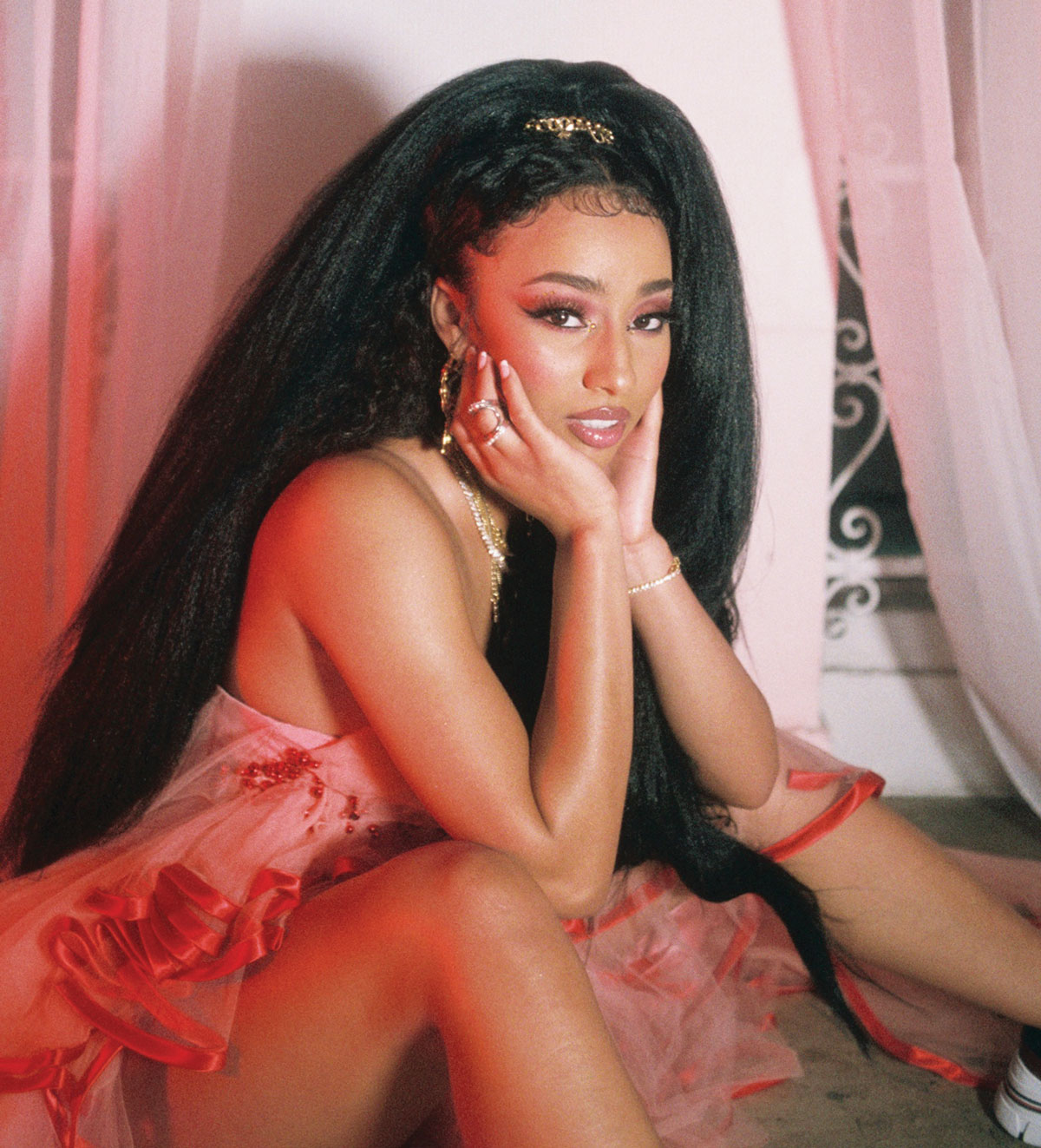
Photograph by CARIANNE OLDER/PEGGY SHOOTS FILM
Rubi Rose
It’s a few days after hip-hop magazine XXL announced its popular Freshman Class of 2021, a list highlighting rap newbies to watch, and 23-year-old Rubi Rose has mixed emotions. On the one hand, she’s thankful to be included among artists she respects on a lineup that includes more women than ever before; on the other, she’s agitated because with the announcement came a lot of negativity—namely, claims that she only made the list because of her looks and past affiliations with male rappers.
“It’s good that females are finally starting to get recognition despite all the hate,” she says, a trace of weariness in her husky voice, though she brightens up when she mentions Cardi B reached out to encourage her.
Rubi, who is of Eritrean heritage, moved to Atlanta from Kentucky in 2013 and later graduated from Brookwood High School in Gwinnett. The rapper’s ascension has been years in the making, tracing back to 2016, when she was a student at Georgia State University and appeared in Migos’s “Bad & Boujee” music video. Three years later, she signed with L.A. Reid’s HitCo and dropped her sassy single “Big Mouth,” which has racked up more than 16 million views on YouTube.
Somehow, she found time to graduate from GSU with a political science degree last year, right before “life turned up,” thanks to her feature in Cardi B and Megan Thee Stallion’s “WAP” video. That cameo, combined with the popularity of her loosie singles—“Pretty MF,” “Hit Yo Dance,” and “He in His Feelings”—cemented Rubi in a new generation of women rappers embracing their sexuality and leveraging their enormous social-media followings to create business opportunities.
“Without Instagram, Twitter, my music wouldn’t have gotten out there, and I probably wouldn’t have gotten signed,” she says. Today, her social-media accounts reach millions of people. Rubi says OnlyFans, a platform where users can pay for exclusive content, changed her life. The money she received from subscribers for access to her photos helped finance music videos, an in-home studio, and a recent move to LA (though she’s already talking about a return to Atlanta).
With plans to release singles throughout the rest of the year, she wants to make people understand that she can do both: She’s a pretty face and her music “is actually fire.” —Jacinta Howard

Photograph by Ari Skin
Kodie Shane
The music industry can seem like a puzzle with up-and-coming artists shifting themselves like pieces to find their place, but fitting in is the last thing on this 22-year-old’s mind. Kodie Shane, whose music leans toward alternative R&B rap, wants to create her own genre. She calls that the “Drake effect.” (The eponymous artist essentially rebuilt hip-hop in the 2010s, blurring the lines between R&B, pop, and rap.)
Shane spent childhood and adolescence in Chicago and Atlanta, where she attended North Springs High School. When Shane would get into trouble as a young teen, instead of letting her stay at home alone, Shane’s mother would bring her to work with her, to a music studio she co-owned with a family friend, the late producer Matty P. Eventually, Shane was hanging out at the studio even when she wasn’t in trouble. Matty P. (who’d worked with T.I. and Wiz Khalifa) started to mentor her, and, soon, Shane was writing songs for the studio—which is how she eventually caught the attention of Lil Yachty. He rapped on her first big hit, “Sad”—which garnered more than five million plays on Spotify—and, later, invited her to join his Sailing Team, an eight-member crew of rappers and producers. Her verse on the collective’s “All In” was a breakout hit. She was the only woman in the short-lived group, which tracks with gender representation in hip-hop historically. That fact doesn’t discourage Kodie Shane, though: “I rap a lot harder than most of these men.”
Her music isn’t the only reason she stands out: She’s vocal about ditching rigid relationship models and traditional gender roles. Though label executives have encouraged her to hide it, she’s proudly “queer as fuck.” And she refuses to dress any way that makes her feel uncomfortable or hypersexualized, which, for her, means eschewing revealing clothing. She does and wears what she wants, how she wants, and encourages young adults to love others, and themselves, more.
“I’m still exploring different parts of myself through my music,” Shane says. “This is one of the best parts of making music: It’s like painting—you’re never really finished until you decide to stop.” —Kiah Armstrong
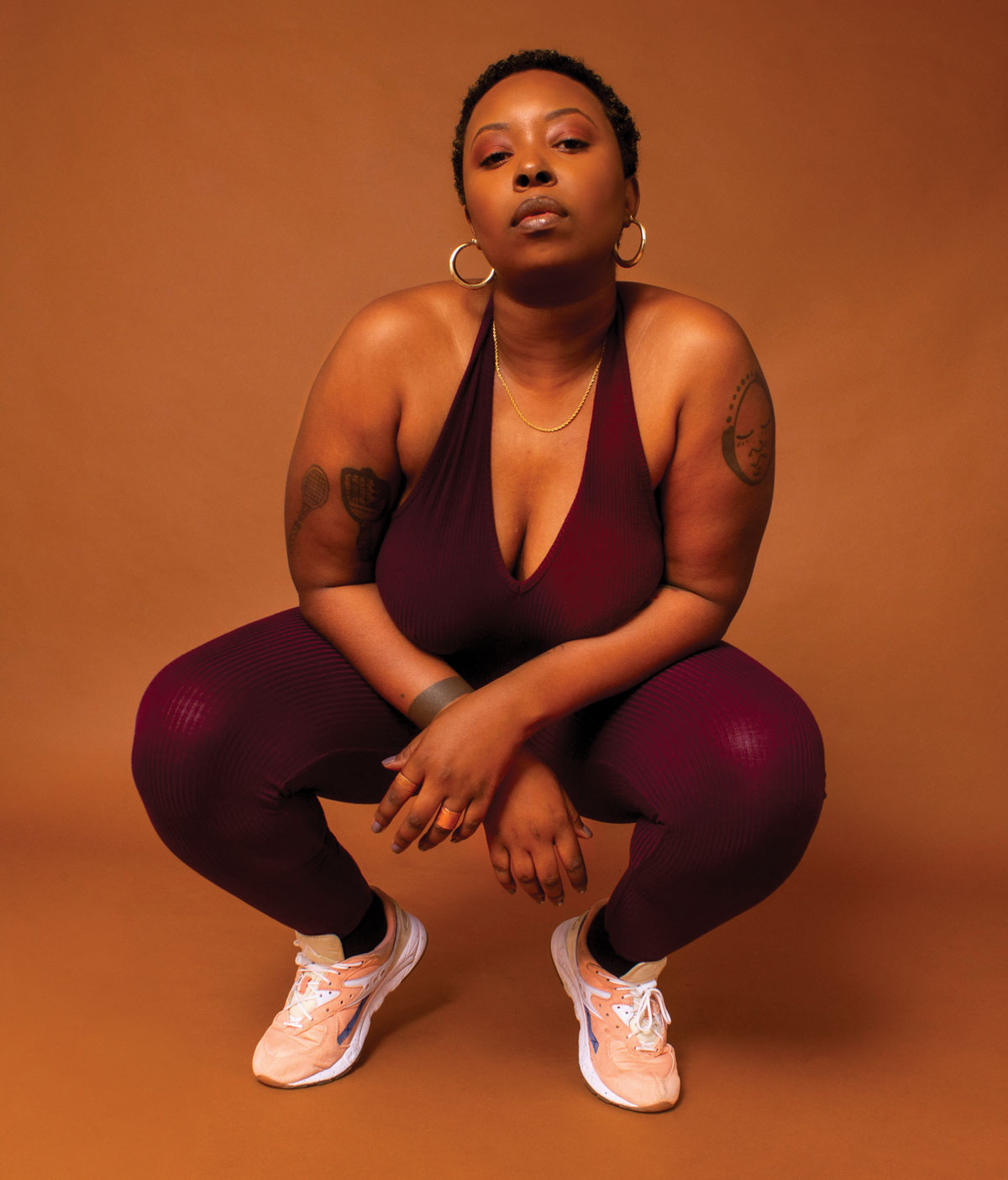
Photograph by Kodak K
Yani Mo
Yani Mo describes her music as “country queer soul.”
“Country” references her upbringing in the South—specifically Lithonia, an area she dubbed “Zone 6.5” (a nod to the police zone nearest her, East Atlanta’s Zone 6). “Queer” signals her intended audience: “the African diaspora and queer folks in the South.” “Soul” speaks to what interests her most as a songwriter and helps distinguish her distinctive form of hip-hop.
“‘Rap poetry’ didn’t stick, so I threw that away. I thought, Is it trap soul?” Yani Mo says. “I just wanted something that was mine, that I could say I created, that felt like home.”
In 2011, Yani Mo was a journalism student at Georgia Southern University in Statesboro, a “very country, Bible Belt town” where white fraternity members driving by in a truck once yelled racial epithets her way. It was there that she found her community, created a spoken- word group called Random Acts of Poetry, and decided to become a musician. Her hope was to use her art to create a “safe haven within this matrix,” as she raps in her 2013 song “ad/ libs.” “We literally created this safe space for artists and lyricists to just come together in fellowship,” she explains. “That [lyric] stems from wanting to create that in my music and in real life as well.”
Since she released her vibrant and diaristic album The Moment in 2017, Yani Mo has listened to Atlanta’s sound evolve: “I think of EarthGang, JID, and Mereba. Deante’ Hitchcock, Yung Baby Tate,” she says.
Yani Mo is currently working on her first album in three years (look for it this winter), sharpening her storytelling and even helping arrange instrumentation. Her latest single, “Life U Choose,” is a two-step anthem ideal for late summer cookouts and imbued with her signature soul: “If I got somethin’ to say, say it / I ain’t got nothin’ to lose / Ain’t no guarantee you get the life you want / It’s about the life you choose.” —Christina Lee

Photograph courtesy of the artist
Londynn B
Londynn B wasn’t supposed to be a rapper. The 27-year-old New York native comes from a family of R&B singers. When Londynn—who, as a kid, bounced between New York City and the South—moved back to Atlanta six years ago to pursue music, she thought that would be her path, too. But one day, taking a break from recording her debut R&B album, she was messing around in her producer’s home studio and recorded the bouncy, motivational “Go Off,” which, to their surprise, was good. It was the first time she’d ever recorded a rap song, and she performed it for a year all over the city, playing every club, showcase, and festival she could.
Then came the call from Netflix. Londynn had just finished performing at the 2018 Atlanta Pride Festival when she was offered a chance to appear on a new rap competition show called Rhythm + Flow, hosted by T.I., Chance the Rapper, and Cardi B. A talent scout caught her set and reached out the next day to offer her an audition.
From the moment she appeared on the series’ debut in 2019, she stood out, and not just because of her signature black-and-white hair, dyed straight down the middle. With her bubbly personality, Londynn—whose name is an act of manifestation and affirmation: She’s always wanted to visit London, and the B is a reminder to “be bold, be brave, and be beautiful”—was an immediate fan favorite. Bolstered by songs she created on the show, like the somber but catchy “I Can’t Change” and the creeping, bass-heavy “Only One,” the charismatic rapper finished in third place. Now, with her full-length debut slated for release this year, she’s excited about the space women have made for themselves in hip-hop. “Women have created their own audience, which gave them their own leverage,” she says. “They’ve started to understand their power.” —Jacinta Howard
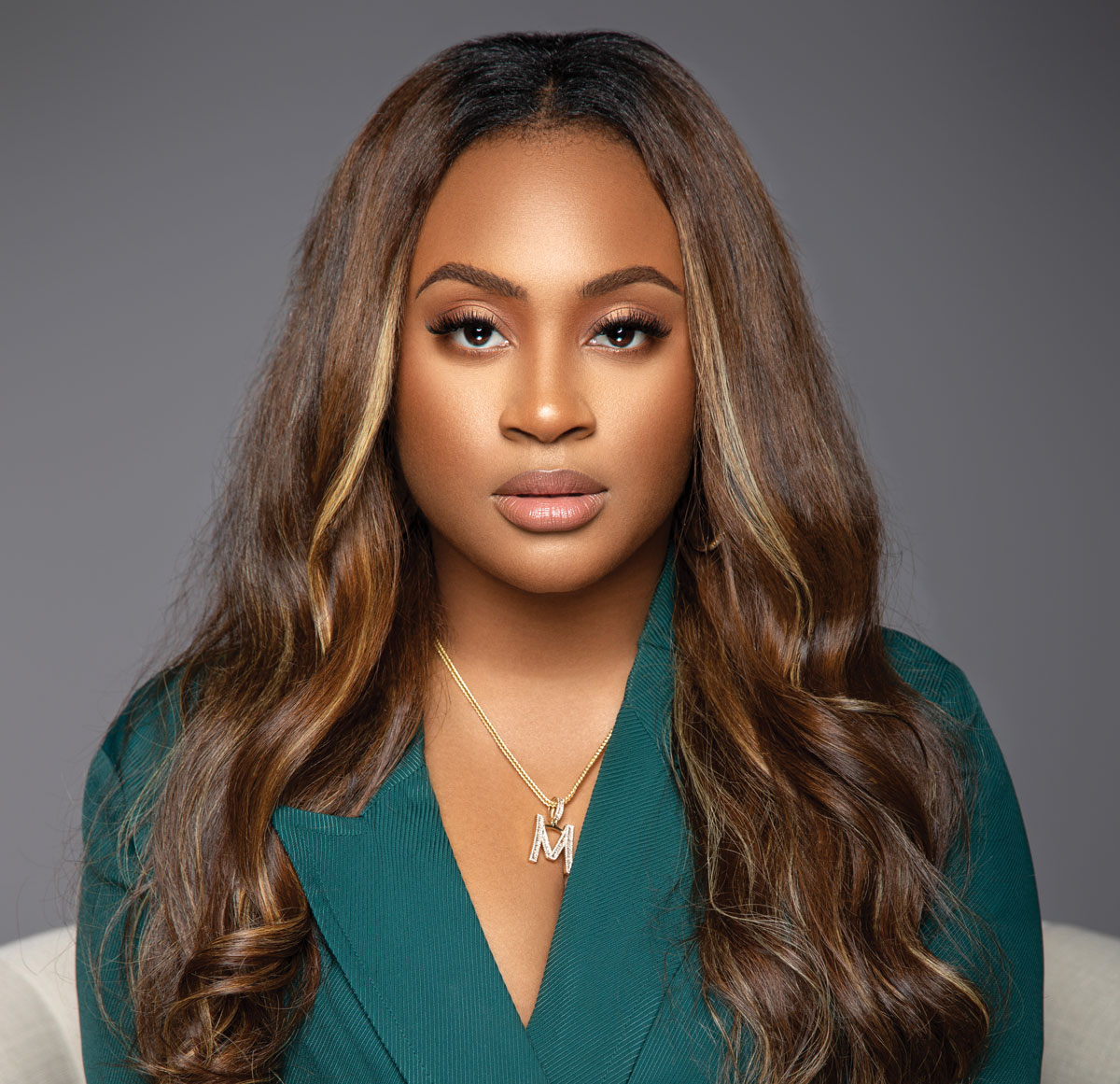
Photograph by IDA.JOHN
Malita the Mogul
It was Aasha Adore, a fellow Baltimore transplant and Goodie Mob’s DJ, who first told Malita Rice she should get into music-industry management. “How do I do that?” Rice asked. This was in the 2010s. Rice had moved to attend Clark Atlanta University, but now, she was busy waitressing and helping friends like Sonny Digital break into the local scene, reaching out to radio and club personalities to promote songs he produced. Adore had to break it to her: “You’re already doing it.”
Rice found success by embracing opportunities as they came her way. Pierre “Pee” Thomas, CEO of Quality Control Music, first hired her to cast music videos for the label; later, she helped cast a season of Love & Hip Hop: Atlanta. In 2014, she homed in on artist management and founded Mogul Mentality, where one of her first clients was producer OG Parker—before his high-profile collaborations with Migos, Chris Brown, and Megan Thee Stallion.
Her knack for discovering talent paid off: This past March, 29-year-old Rice became vice president of artists and repertoire at Warner Records, overseeing the label’s new-artist signings and stepping into what experts have called a “diversity desert”—less than 10 percent of A&R executives are women of color.
Today, Rice reports directly to CEO and chairman Aaron Bay-Schuck, who discovered, signed, and developed Bruno Mars back when he was at Atlantic. “That’s what I do for a living,” says Rice. “Getting people placements, knowing what the new sound is and who the up-and-coming producers are.”
Six months in, she’s still adjusting to the role. SoundCloud used to be the best place to find talent; today, it’s TikTok, the hitmaking social-media platform that, Rice jokes, her two- year-old cousin navigates better than she does.
But even before Warner came calling, Rice knew if she was to work at a label—and she had entertained offers from others—a senior-exec position was what she deserved: “Why would I walk into anything less?” —Christina Lee
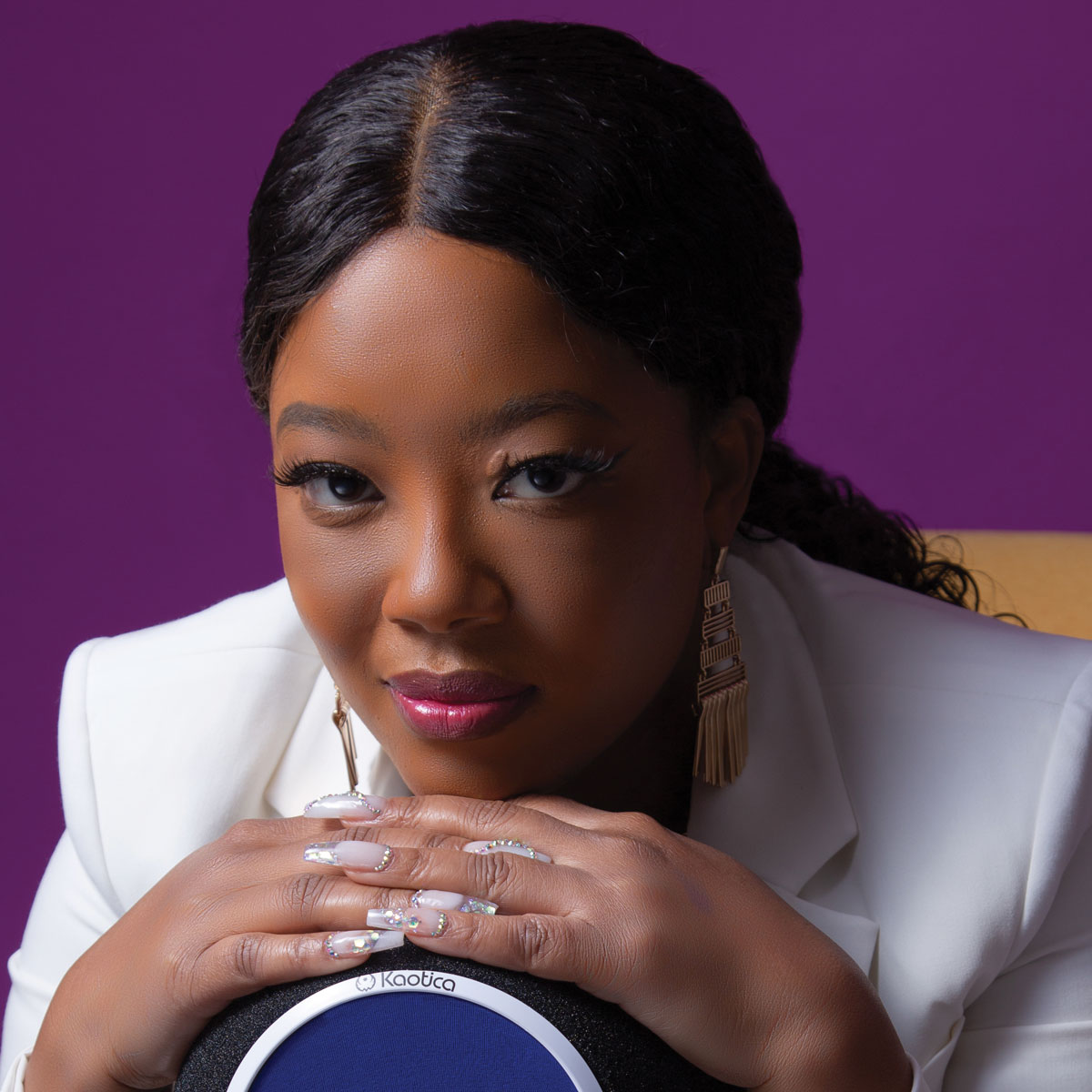
PATRICIA WILLIAMS: SIMONE KILGORE OF 88 VINTAGE LLC, HAIR: JUDY JEROME, MAKEUP: MAKEUP BY JANET.
Patricia “Pink” Williams
Relocating from Florida to Georgia was supposed to be a strategic move for Central Booking Entertainment, the label Patricia Williams cofounded with her husband. A decade in, though, they separated and closed the company. Williams grew frustrated with trying to break into the music industry, and, in 2009, set aside those dreams altogether.
Several years passed before she stumbled on another way in: the Atlanta Institute of Music and Media. It was there, during her audio postproduction studies, that she learned about pink noise, a soothing frequency she calls “the perfect sound.” That concept inspired her nickname, “Pink,” as the first-ever female engineer at Patchwerk Recording Studios, which was founded in 1994 by Atlanta Falcons player Bob Whitfield and hosted landmark sessions by OutKast, Ludacris, and Jeezy. Williams—who specializes in tracking, or recording vocals before a song gets mixed and mastered—stands out in her field: Only 5 percent of audio professionals in the U.S. are women. “There’s always that hesitance because most artists are used to working with a male engineer. Sometimes, they just don’t think [women] know what we’re doing,” she says.
In 2018, producer Tasha Catour—“the only person who took me seriously when I started engineering”—had Williams writing songs with rapper and former Atlantan Sukihana. Then, Williams recorded the bulk of Saucy Santana’s debut album, Imma Celebrity. She says Santana’s distributor, StreamCut, figured she would mesh best with the gay artist, adding that some male engineers weren’t comfortable working with him. She was proud to, though: “He’s opening doors for the LGBTQ community and the way people view that community in the hip-hop scene.”
Williams, now 42, recently branched out into artist management with the same goal as always: the perfect sound. —Christina Lee
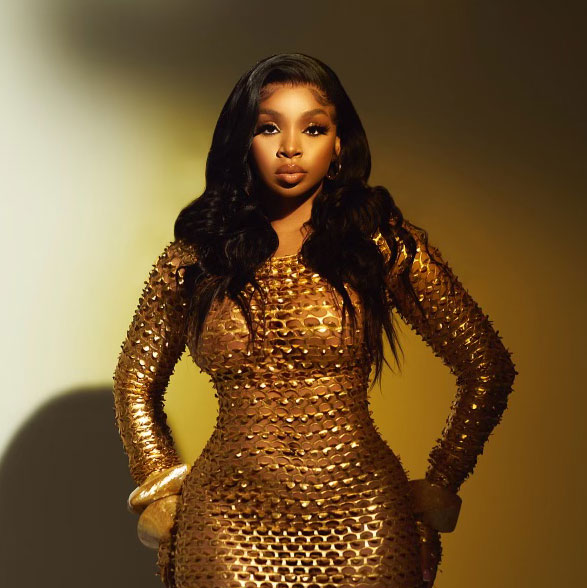
Photograph courtesy of LightSkinKeisha
LightSkinKeisha
Sometimes all it takes is one video going viral. For LightSkinKeisha, it was a 15-second clip showing her and some friends doing their hair and makeup in the bathroom while a friend dances to Keisha’s snappy chant, “burnt p*ssy lips.” It got tens of thousands of views on YouTube—and paved the way for her next viral hit.
The 26-year-old Decatur native, who used to make videos in the car on her way to work, later recorded, “Act Up Season,” which she describes as the time of year when women are feeling sexy or, more specifically, “that motherf*ckin’ ‘tight dress, fitted, let that ass clap and bounce everywhere’ weather.” Pulling audio from that “Act Up Season” riff, Keisha then took to the studio and recorded her first musical hit, “Weather,” which garnered more than a million listens on Spotify. The artist, who has 236,000 YouTube subscribers and 2.5 million Instagram followers, says the transition from social media to music was easy for her: “My mom always had a music studio in the house, so I’ve been around music my whole life.”
Her music sits at the intersection of hip-hop and R&B; her use of melody makes her versatile enough to dip into both genres with songs like “Ride Good” and “Blue Hunnid’s.”
She doesn’t try to be a role model for young people, but they look up to her anyway. “I see a lot of girls DM me and say all the time how I inspired them and how I motivate them because they’ve seen me grow from when I was in the beginning of my journey until now,” she says.
Lately, that journey includes acting and entrepreneurship. Earlier this year, she appeared on the Starz show Power Book II: Ghost and launched her own organic skincare brand. (She credits the pandemic for the latter; quarantine gave her nothing but time.)
Keisha says being able to pivot from making music to acting to running a business is a luxury that may not have been available for rappers like her in the past. “They tried to shut females out because people wanted us to behave and act a certain way because they didn’t want to hear the vulgarities coming out of our mouths,” she says. “Now, there’s so many of us thriving because we all have different personalities and can finally be sexy.”
Keisha says one of the challenges women in music still face is constant criticism of their appearance—their weight, makeup, clothes, and hair—but she chooses to focus on her fans. “You just have to follow the positivity and block out the negative,” she says. —Kiah Armstrong
New flavor in your ear: Read more stories about how women in Atlanta are changing the face of hip-hop
A version of this article appears in our September 2021 issue.




